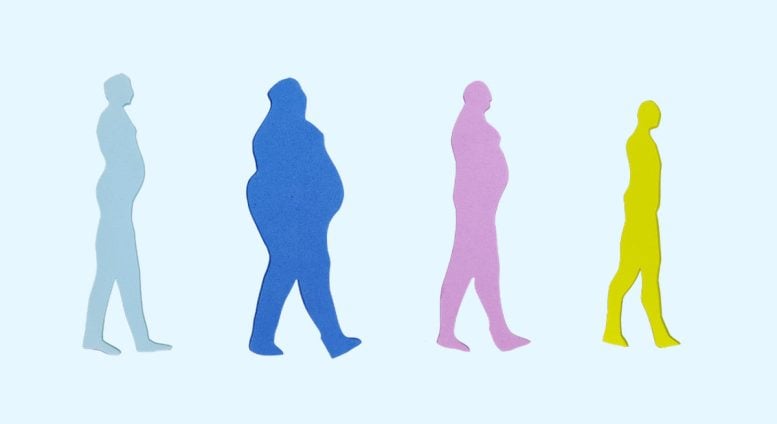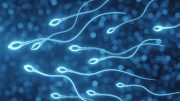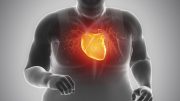
“You could speculate whether the people who put on weight again simply lack the appetite-inhibiting effect which neurotensin appears to have,” says senior author Signe Sørensen Torekov. Credit: Cathrine Sixhøj Chrone (University of Copenhagen)
In numerous nations today, approximately fifty percent of the population is overweight, a figure that’s on an upward trajectory. While a significant number of people are able to shed weight, the challenging aspect is maintaining that weight loss.
Recent research conducted at the University of Copenhagen suggests that the hormone neurotensin could potentially serve as a predictor for an individual’s ability to sustain weight loss.
The study, which has been published in the scientific journal Metabolism, is a so-called proof-of-concept study, which means that it is the first time that the hormone has been investigated in relation to weight loss induced by a low-calorie diet.
“Initially, we examined the effect of weight loss in obese mice and concluded that weight loss led to decreased amount of the hormone neurotensin. Subsequently, in a clinical study, we found that weight loss also led to a decreased amount of neurotensin in humans. Interestingly, people who maintained weight loss released more neurotensin than people who regained weight again,” explains Professor Signe Sørensen Torekov, who is the last author of the study, at the Department of Biomedical Sciences at the University of Copenhagen.
“It may help explain why some people are more successful than others at maintaining weight loss.”
Like other appetite gut hormones, neurotensin is released by the intestines when we eat, and the information is compiled in the brain, which will determine whether we should continue eating or feel full.
The participants lost weight during the eight-week, low-calorie diet. The researchers concluded that the people who lost even more weight in the year following the diet released more neurotensin than people who gained weight after completing the diet.
“It is an interesting result. You can speculate whether the people who put on weight again simply lack the appetite-inhibiting effect which neurotensin appears to have,” says Signe Sørensen Torekov.
Studying appetite hormones to learn how humans may maintain weight loss
We know that people who have undergone bariatric surgery to lose weight release more neurotensin when they eat. It was this insight that inspired the researchers to study the effect of neurotensin on weight loss.
“We know that other gut hormones, released in greater amounts after obesity surgery, help explain why people who have undergone obesity surgery are able to maintain weight loss. But no one had studied the role of neurotensin in connection with diet-induced weight loss,” says MD and Ph.D. Student Joachim Holt, who is the first author of the study.
Whether a drug simulating neurotensin release in the brain or intestines is interesting, explains Signe Sørensen Torekov.
“Another interesting thing about studying these appetite hormones is to learn how humans may respond to potential treatment and especially the combination of several appetite hormones to maintain weight loss,” says Signe Sørensen Torekov.
However, when researchers first discovered leptin, a key hormone in weight regulation, they learned that amounts drop during weight loss. This could indicate that increasing the amount of leptin in the body would cause people to lose weight
“But it turns out that people who live with obesity are leptin resistant, which means that they do not respond with weight loss to the hormone. We do not know whether this also applies to neurotensin. So we still have a lot of work ahead of us.”
Reference: “Increased meal-induced neurotensin response predicts successful maintenance of weight loss – Data from a randomized controlled trial” by Annemette Overgaard Brethvad, Hannah Louise Zakariassen, Joachim Holt, Julie Rehné Lundgren, Alexander Jakobsen, Bolette Hartmann, Eva Winning Lehmann, Hannelouise Kissow, Jens Juul Holst, Sten Madsbad, Signe Sørensen Torekov and Birgitte Holst, 16 March 2023, Metabolism.
DOI: 10.1016/j.metabol.2023.155534









Be the first to comment on "Unraveling the Secret of Maintaining Weight-Loss: Role of Neurotensin Unveiled"